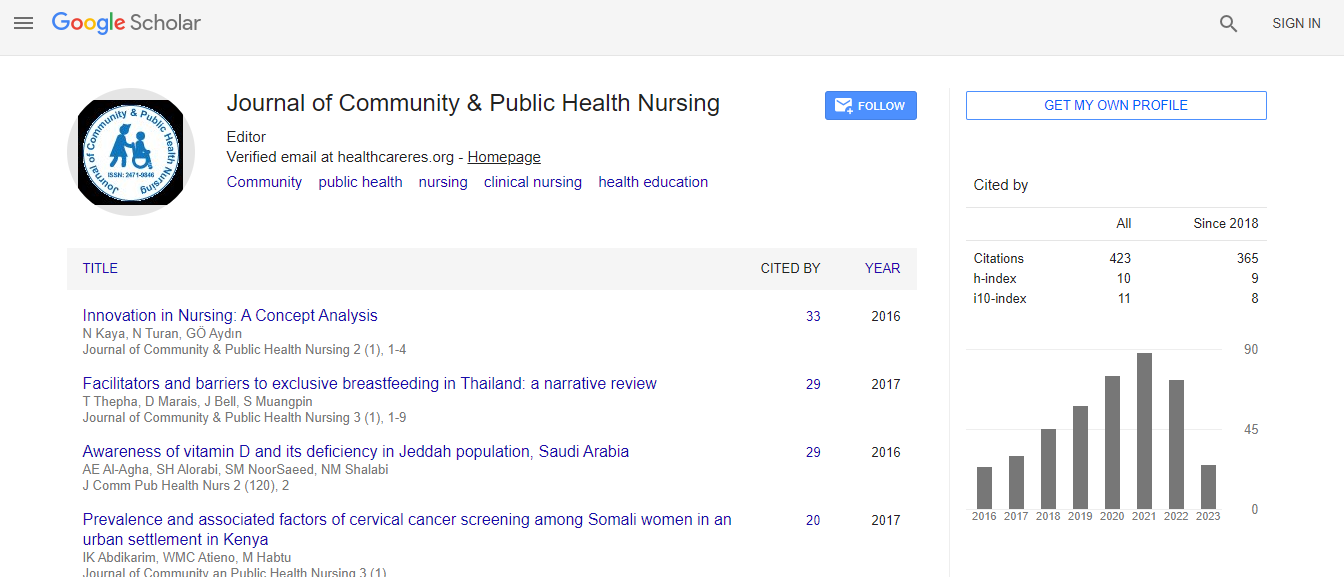Research Article
Political Efficacy and Political Participation among Nurses in Tertiary Hospitals, the Republic of Kenya
Caleb Kitagwa Ahoya*Department of Nursing Administration, the Republic of Kenya
- *Corresponding Author:
- Caleb Kitagwa Ahoya
M.S.N., Professional Nurse
the Republic of Kenya
Tel: +254722988794
E-mail: kellyrebel23@gmail.com
Received date: October 21, 2016; Accepted date: November 12, 2016; Published date: November 19, 2016
Citation: Ahoya CK (2016) Political Efficacy and Political Participation among Nurses in Tertiary Hospitals, the Republic of Kenya. J Comm Pub Health Nurs 2:142. doi:10.4172/2471-9846.1000142
Copyright: © 2016 Ahoya CK. This is an open-access article distributed under the terms of the Creative Commons Attribution License, which permits unrestricted use, distribution, and reproduction in any medium, provided the original author and source are credited.
Abstract
Nurses are health professionals with first-hand knowledge and expertise to influence health policy. This correlational descriptive study aimed to determine political efficacy, political participation and the relationship between political efficacy and political participation among nurses at the tertiary level hospitals, the Republic of Kenya. The sample consisted of 347 nurses from two tertiary level hospitals, selected using the stratified random sampling method. Research instruments were the Demographic data form, the Political Efficacy (PE) Scale, and the Political Participation (PP) Scale. The Cronbach’s alpha coefficient of both the PE and PP Scales were 0.82. Data was analyzed using descriptive statistics and Spearman’s Rank Correlation Coefficient.
The results revealed that the overall scores for PE and PP were at moderate levels. There was a statistically significant positive correlation between PP and PE. The study results can be used by nurse administrators to develop strategies to improve nurse’s political efficacy and political participation.

 Spanish
Spanish  Chinese
Chinese  Russian
Russian  German
German  French
French  Japanese
Japanese  Portuguese
Portuguese  Hindi
Hindi 
